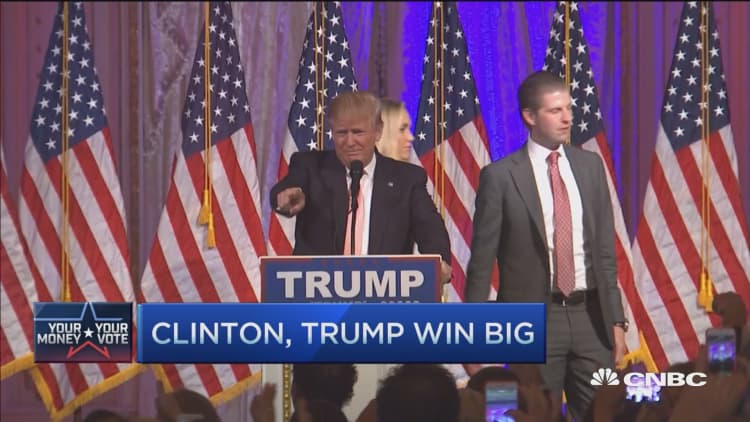
There is one thing we know for certain — or at least close to certain — about the fight over President Barack Obama's Supreme Court nomination. Merrick Garland, no matter his sterling credentials, is not going to be on the high court, at least this year.
Senate Republicans are rock solid in their refusal to even schedule hearings for Garland, confident they have the support of their base, if not the broader American public. The much bigger risk for Republicans would be defying conservatives and acceding to move forward on Garland. Doing so would enrage a base already disgusted with "establishment" Republicans in Washington and rallying around Donald Trump's presidential campaign. Trump on Wednesday urged the GOP Senate to block Garland's nomination.
And if Republicans caved to Obama's call to respect the constitutional process and at least schedule hearings and a vote on Garland, they would quickly run into a huge problem: There is really no good reason not to confirm the chief judge of the influential D.C. Circuit Court. Garland is no Robert Bork. He's a mostly centrist and widely admired jurist confirmed by the Senate 76-23 in 1997.
While five currently serving GOP senators opposed Garland's nomination — including Majority Leader Mitch McConnell, R-Ky., and Senate Judiciary Chairman Chuck Grassley, R-Iowa — the bulk of the caucus supported him. Former Judiciary Chairman Orrin Hatch, R-Utah, previously recommended Garland for the high court, something Obama noted Wednesday.
Republicans cannot afford to have a real debate over whether Garland is qualified, because he is. They must instead stand on their assertion that it is too late for Obama to name another justice, especially to fill the seat vacated by the death of conservative icon Antonin Scalia.
"Let's let the American people decide," McConnell said from the floor Wednesday. "The Senate will appropriately revisit the matter when it considers the qualifications of the nominee the next president nominates, whoever that might be."
Republicans are willing to take the longer-term risk that Hillary Clinton wins the White House sends up a more liberal justice rather than the short-term risk of further blowing up a party that is already in flames on the presidential campaign trail.
In fact, presidential politics play a very large role in the GOP calculus. Many in the party still want to deny Trump the nomination, likely through a contested convention in Cleveland in July. That would get exponentially harder if the party asked its most fervid supporters — who are motivated in large measure by disgust with Obama — to swallow another Supreme Court justice from the outgoing president.
So the question is not what happens to Garland — that's pretty well-known — but whether Republicans' refusal to move forward will cost them in the general election. Obama, Clinton and the Democrats will spend the next months blistering the GOP for "obstructionism" and being unfair for not at least allowing Garland a hearing and a vote.
The dream for Democrats is that Republicans nominate Trump, who has astronomically high negative ratings especially among minority voters. Couple that with a consistent message that Republicans are political arsonists with no interest in actually governing, and Democrats believe they will take both the White House and the Senate in November and maybe even the House if Trump really blows up in a spectacular way.
The polling numbers suggest they have the high ground on the Supreme Court fight even though Democrats in the past have tried to block high-court nominees from outgoing Republican presidents. A recent Wall Street Journal poll found that 55 percent of Americans oppose McConnell's plan to not even take up Garland's nomination.
None of that really matters to Republicans. The party's base is restive and angry. And betraying them over Scalia's seat could destroy the party entirely. They just can't risk it.
—Ben White is Politico's chief economic correspondent and a CNBC contributor. He also authors the daily tip sheet Politico Morning Money [politico.com/morningmoney]. Follow him on Twitter @morningmoneyben.



